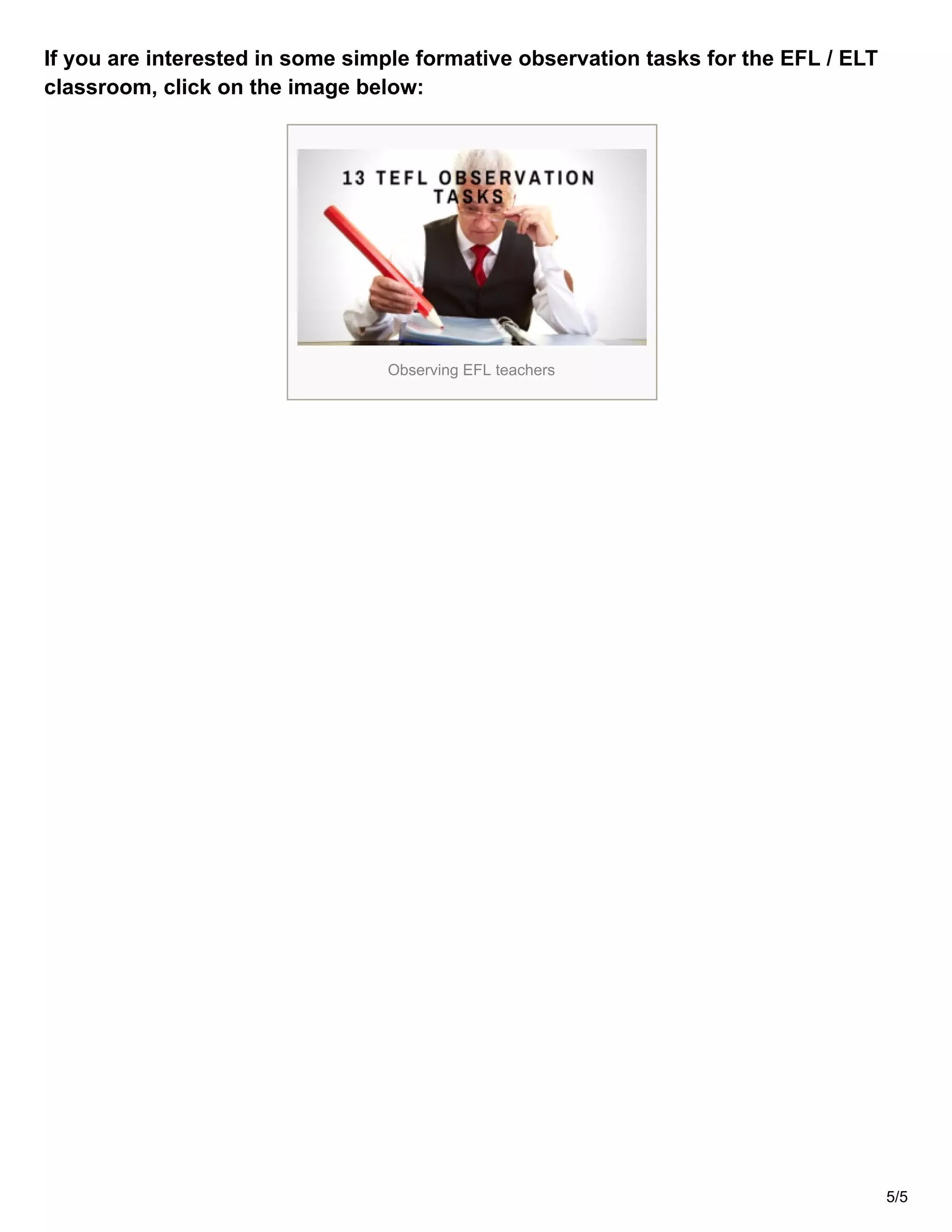The document discusses the need for supportive, professional development-focused observations in English language teaching, rather than evaluations that induce stress among teachers. It suggests involving teachers in the observation process, using peer observations, and conducting shorter, more frequent observations to get a more accurate picture of teaching practices. The author argues that the existing observation policies often fail to reflect teachers' actual performance and recommend changes to foster a more relaxed and productive observation environment.




